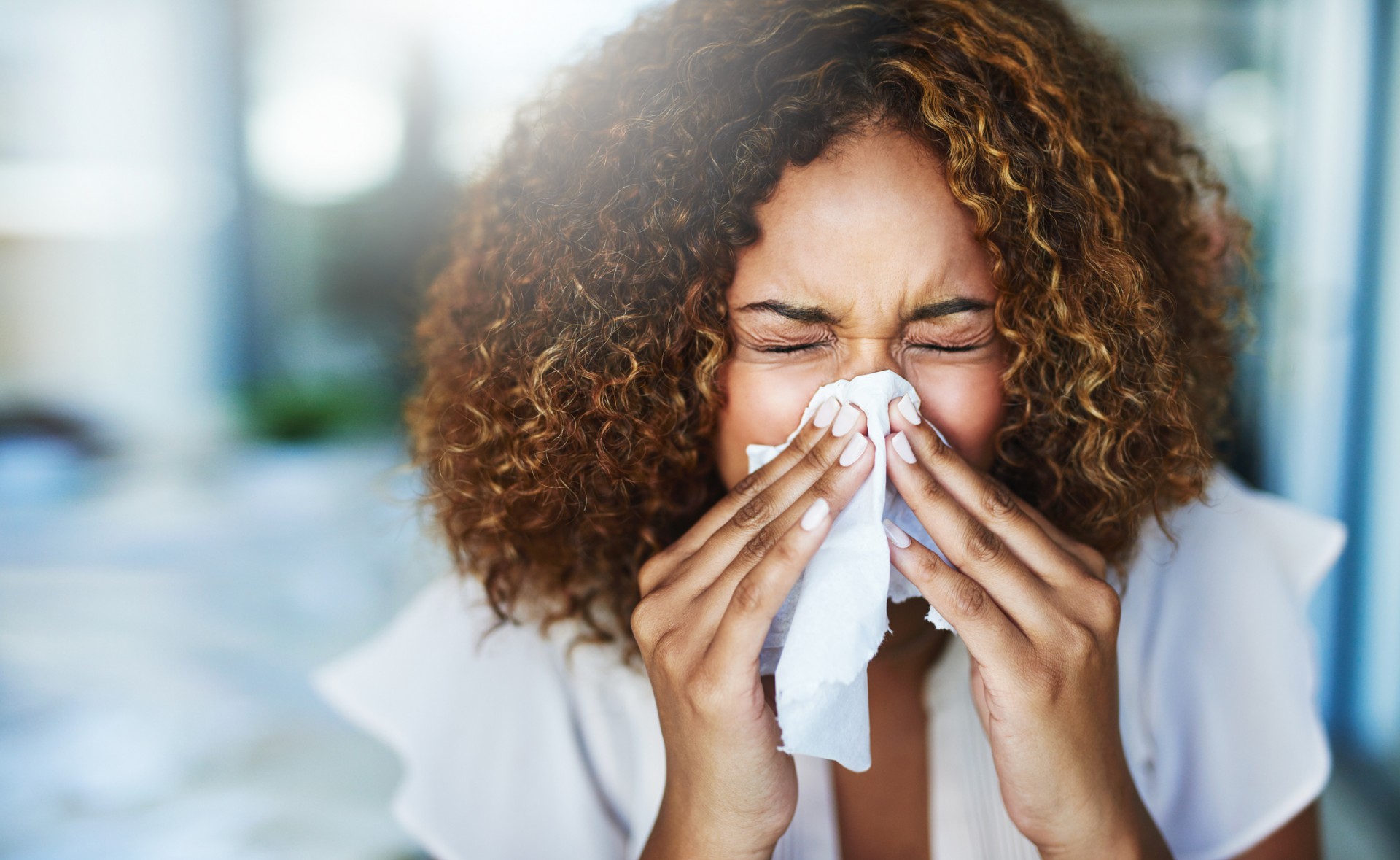What are the symptoms of rhinorrhea?
Rhinorrhea, commonly known as a runny nose, is characterized by several symptoms:
- Excessive Nasal Discharge: Clear, watery mucus coming from the nose.
- Nasal Congestion: A feeling of blockage or stuffiness in the nasal passages.
- Frequent Sneezing: Often accompanying the nasal discharge.
- Itchy or Irritated Nose: Discomfort in the nasal passages.
- Postnasal Drip: Mucus dripping down the back of the throat, which can cause coughing or throat irritation.
- Swelling in Nasal Passages: Sometimes observed, especially if the rhinorrhea is associated with an allergic reaction or infection.
These symptoms can vary in severity depending on the underlying cause, which may include allergies, infections, or irritants.
What are the causes of rhinorrhea?
Rhinorrhea, or a runny nose, can be caused by several factors:
- Infections: Viral infections like the common cold or flu, and bacterial infections like sinusitis, can lead to increased nasal discharge.
- Allergies: Allergens such as pollen, dust mites, mold, and pet dander can trigger allergic rhinitis, causing a runny nose.
- Irritants: Exposure to smoke, strong odors, pollution, or chemicals can irritate the nasal passages and result in rhinorrhea.
- Sinusitis: Inflammation or infection of the sinuses can lead to excessive mucus production and nasal discharge.
- Medications: Overuse of nasal decongestant sprays can cause rebound rhinorrhea, known as rhinitis medicamentosa.
- Environmental Changes: Rapid changes in temperature or humidity can sometimes trigger rhinorrhea.
- Non-allergic Rhinitis: This condition, often linked to changes in weather or exposure to irritants, can cause a runny nose without an allergic reaction.
- Structural Issues: Nasal polyps or a deviated septum can obstruct nasal airflow and contribute to rhinorrhea.
What is the treatment for rhinorrhea?
The treatment for rhinorrhea depends on its underlying cause. Here are common approaches:
- For Infections: Rest, preventing dehydration, and over-the-counter decongestants or antihistamines can help alleviate symptoms. For bacterial infections, antibiotics may be prescribed if necessary.
- For Allergies: Avoiding known allergens, using antihistamines, nasal corticosteroids, or decongestant sprays can help manage symptoms. Allergy testing and immunotherapy may also be considered for severe cases.
- For Irritants: Reducing exposure to irritants like smoke and strong odors can prevent or minimize rhinorrhea. Using saline nasal sprays can help soothe irritated nasal passages.
- For Sinusitis: Treatment may include nasal corticosteroids, saline irrigation, and in some cases, antibiotics if a bacterial infection is present. Chronic sinusitis might require more specialized treatment.
- For Rhinitis Medicamentosa: Discontinuing the overused nasal decongestant spray and using alternative treatments like nasal corticosteroids or saline sprays can help.
- For Non-allergic Rhinitis: Identifying and avoiding triggers, using saline nasal sprays, and sometimes nasal corticosteroids can help manage symptoms.
- For Structural Issues: If nasal polyps or a deviated septum are the cause, surgical intervention may be necessary.
Consulting a healthcare provider is crucial for a proper diagnosis and tailored treatment plan.

Leave a Reply
You must be logged in to post a comment.